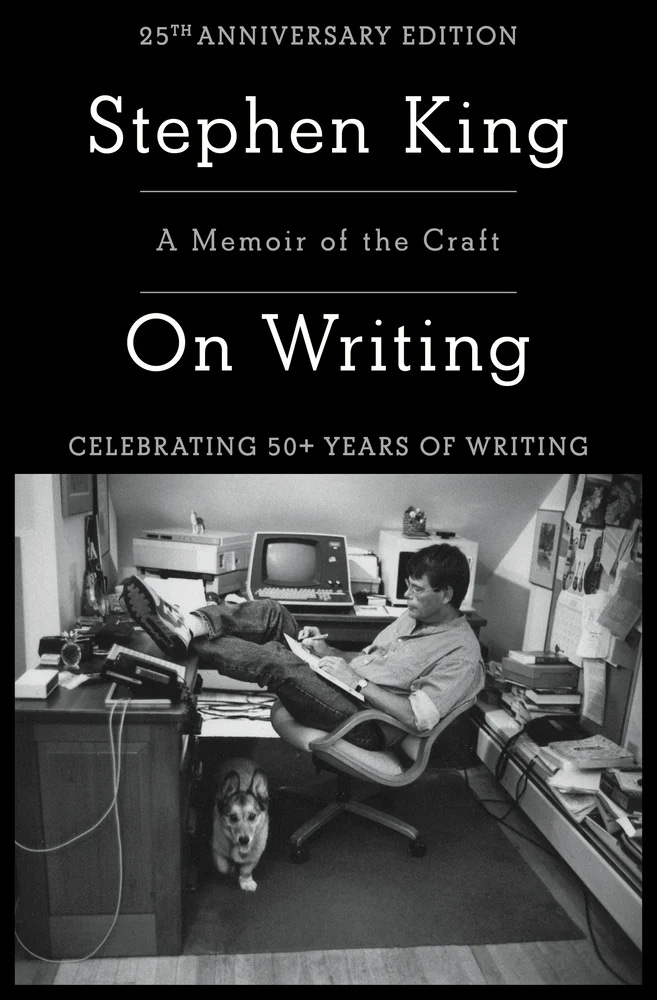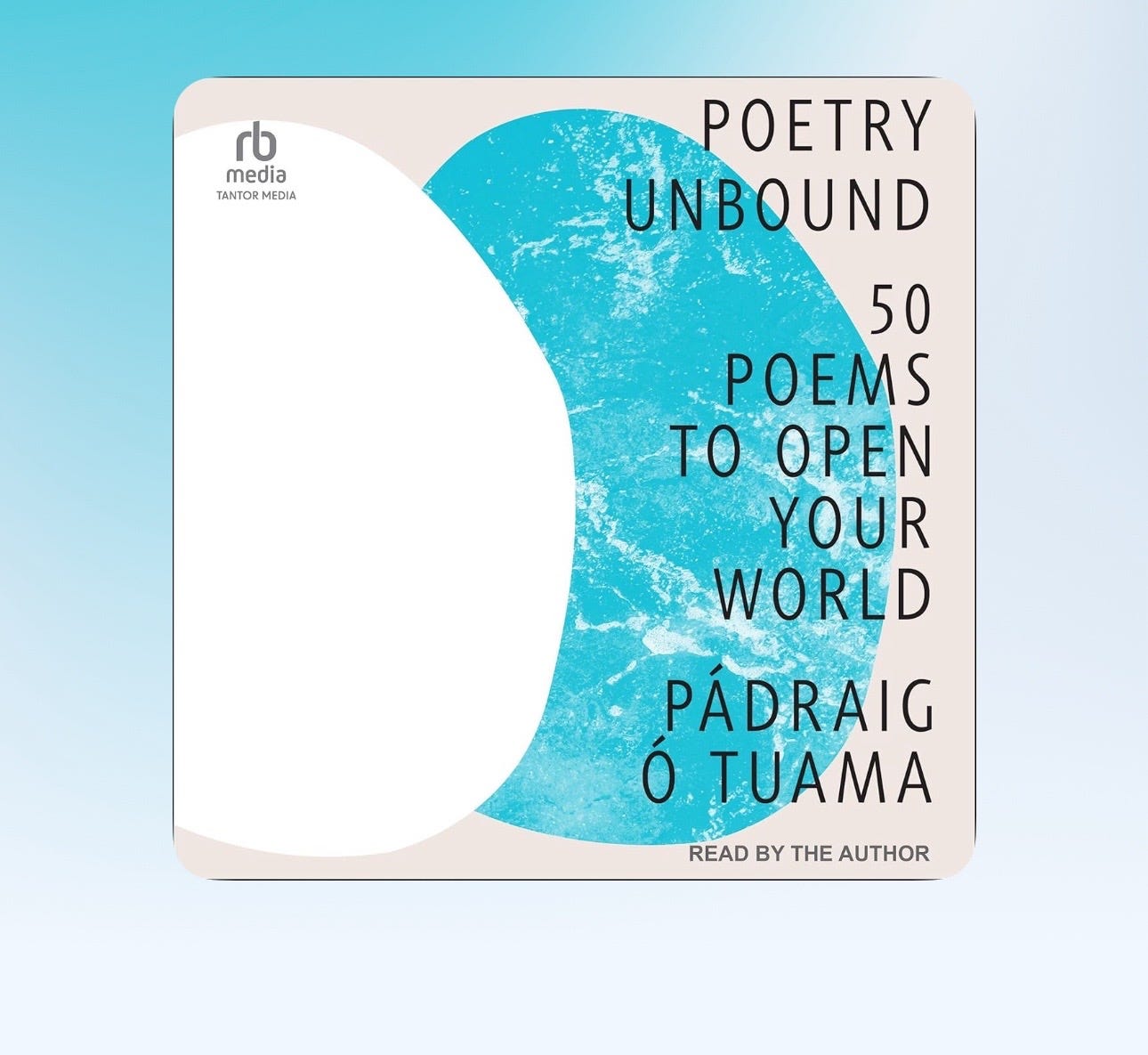Books Writers Should Read
Running List of Books that Make You a Better Writer (All Genres)
AT A GLANCE:
1. The Making of a Story, By Alice LaPlante.
2. Underland, by Robert Macfarlane.
3. A Poetry Handbook, By Mary Oliver.
4. On Writing, By Stephen King
5. Poetry Unbound by Pádraig Ó Tuama
1. The Making of a Story By Alice LaPlante
A Must-Have Craft Encyclopedia for Writers.
If there’s one book that deserves a permanent spot on your writing desk, it’s Alice LaPlante’s The Making of a Story: A Norton Guide to Creative Writing.
This massive tome—seriously, it’s as big as an old phone book—earns its place not just because of its striking cover, and it is quite beautiful on my shelf, but because it delivers an all-encompassing look at what it takes to craft compelling fiction and nonfiction.
What makes this guide a standout is its dual approach: it covers both the art and the science of storytelling. LaPlante seamlessly blends theory with application, offering deep dives into essential topics like voice, character, and structure, while providing hands-on exercises that push you beyond your comfort zone. It’s the kind of book that meets you wherever you are in your writing process, whether you’re at the blank-page stage or knee-deep in revisions.
Another reason this book is a treasure?
It’s loaded with readings from iconic writers. You’re not just learning about the craft—you’re seeing it in action, with examples from literary heavyweights that make each point resonate. The readings, paired with LaPlante’s insightful commentary, give you a clear roadmap for how to apply the principles discussed.
The beauty of The Making of a Story is that it’s more than just a manual—it’s a comprehensive reference book you’ll come back to time and again. It’s got the heft and depth of an old encyclopedia, making it an invaluable resource for any writer who’s serious about honing their craft.
2. Underland, by Robert Macfarlane.
When Creative Nonfiction Meets Poetry.
Truth be told this is (was?) not my typical read. Before Underland, I ashamedly reserved nonfiction for data-downloads in the form of Audibles on a playback speed of 2.0. I originally bought it thinking it would be a "cup-filling" book in my same genre—something to read between drafts—and it ended up being so much more. Macfarlane’s journey beneath our earth layers ancient history with poetic storytelling, turning nonfiction into a novel-like experience of its own. The prose is atmospheric and “deeply” rich.
What makes this essential for writers?
The way Macfarlane layers scientific insight with personal reflection, without overwhelming the reader in exposition. He shows us how language can evoke entire landscapes of emotions, and histories. It’s a masterclass in storytelling, environment, world building and the beauty of slowing down to truly appreciate the art.
3. A Poetry Handbook by Mary Oliver
“Loyalty to the actual experience—whatever got the poem started—is not necessarily helpful, often it is a hindrance.” —Mary Oliver
Mary Oliver’s A Poetry Handbook is a compact yet deeply insightful guide for poets at all stages, but it is especially valuable for those participating in workshops. With her signature clarity and precision, Oliver dissects the mechanics of poetry—sound, rhythm, lineation, imagery—while maintaining a reverence for the ineffable qualities that make a poem resonate. She blends practical instruction with poetic wisdom, emphasizing discipline, observation, and the necessity of reading widely.
For workshop participants, Oliver’s approach is a grounding force. She advocates for the slow, careful study of poems, urging writers to develop their technical skills rather than relying solely on inspiration. This is crucial in a workshop setting, where critique often focuses on refining craft. Her sections on revision and the importance of reading poetry aloud provide actionable insights that can help workshop writers hone their work before presenting it to a group.
What sets this book apart is its accessibility. Oliver does not overwhelm readers with theory; instead, she distills poetic essentials into digestible, applicable lessons. She makes a strong case for poetry as a craft that requires apprenticeship, not just raw talent. In workshops, where feedback can sometimes feel abstract or overly subjective, Oliver’s book serves as a reminder that poetry has structure, history, and techniques that can be studied and mastered.
Why Every Workshop Writer Should Read It
Craft Awareness – Workshops can be filled with feedback that focuses on how a poem feels, but Oliver helps writers articulate why something works (or doesn’t) by breaking down elements like meter, diction, and musicality.
Self-Editing Skills – Oliver’s discussion on revision is a crucial tool for workshopping poets, helping them identify weak lines, tighten phrasing, and refine voice before bringing their work to a group.
Sound and Rhythm – Many workshop poets focus on imagery and theme while neglecting the sonic qualities of poetry. Oliver reminds writers that sound is as vital as meaning.
Reading as a Poet – She stresses the importance of studying poetry deeply, which enhances both workshop discussions and personal writing growth.
A Poetry Handbook is a must-read for poets engaging in workshops because it provides the technical vocabulary, reading strategies, and revision techniques that make workshop participation more constructive and insightful. Whether you’re giving or receiving feedback, Oliver’s guidance will refine your poetic instincts and deepen your understanding of craft.
4. On Writing, by Stephen King
Part Memoir - Part Writing Advice.
I’ll be honest: I avoided this one for a while. Not because I don’t respect Stephen King’s career, but because I assumed it was geared toward horror writers. What I found instead was an entertaining and practical advice for any writer.
On Writing is King at his most distilled. He walks you through his journey—from struggling teacher in a trailer to bestselling author—not to boast, but to demystify the process. Then he shifts gears and gets into the craft: sentence structure, story mechanics, dialogue, revision. And he makes it accessible.
Why should writers read this?
Because King doesn’t romanticize writing. He reminds you that writing is both art and work, and that showing up, consistently and imperfectly, is what counts. His tone is conversational but from someone who has completed a journey and is able to effortlessly look back on it. It’s encouraging, but not indulgent. You’ll walk away with practical tools, but more importantly, with the deep conviction that yes, you can do this.
5. Poetry Unbound by Pádraig Ó Tuama
I'd recommend reading this alongside Mary Oliver’s A Poetry Handbook as a kind of prerequisite for anyone entering the workshop space.
Poetry Unbound is one of those rare books that strikes a near-perfect balance between a craft book and a pleasure read. With profound generosity, Ó Tuama offers reflections that are as emotionally resonant as they are instructive. The book levels the playing field in the best way—it makes craft insight feel wholly accessible, without ever diluting its complexity. You'll find tools here that are readily up-took and transformational.
Another reason this book is a treasure to writers?
This book teaches without posturing. Each poem is approached with reverence, clarity, and curiosity. The commentary feels like a workshop in disguise—gentle but exacting, intimate but illuminating.
I’ll say it plainly: I have a new goal in life—to have one of my poems reviewed by Pádraig Ó Tuama. His lens is a gift, and this book proves it over and over again.









Can I add one?
Why Every Writer Should Read "On Writing Well" by William Zinsser
It’s not just a book about sentences - it’s a book about clarity, intention, and the quiet discipline of choosing the right words for the right reasons.
What makes it essential?
It teaches you to cut the clutter and serve the reader.
It reminds you that writing is a craft, not a gift.
It works for every genre - memoir, business, science, blogging.
And it’s written with the exact voice most of us are still chasing.
Zinsser doesn’t just talk about good writing — he models it, line by line.
It’s the book I recommend to every writer who wants to stop performing and start connecting.